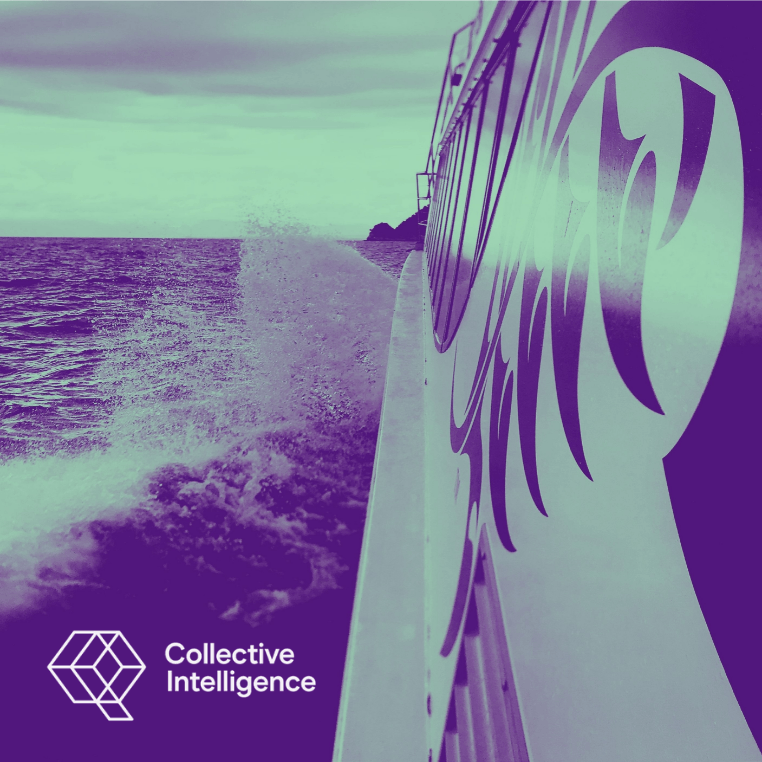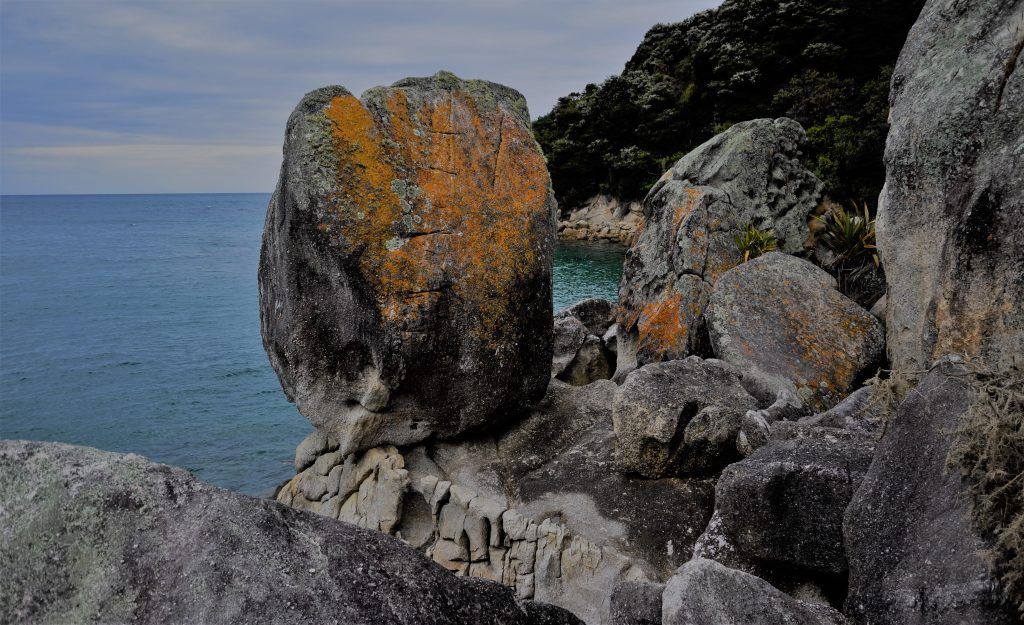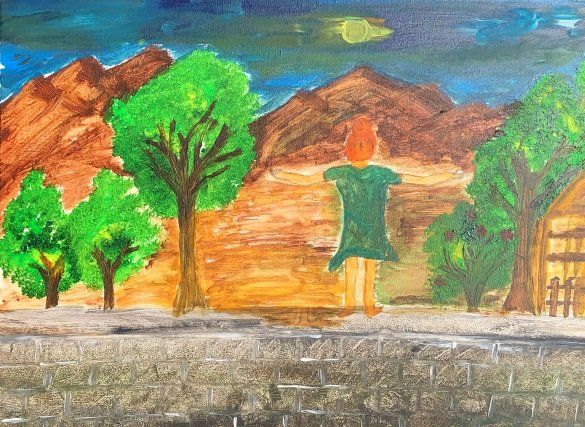Ph: 06 280 0938
The Unfolding Evolution of a Collective Intelligence Team – Part II

This is the second in a four-part series documenting the evolution of an actual Collective Intelligence team, and outlines the second and third year of the team’s development. Our guest blogger and their team requested anonymity so they can tell their story openly and from the heart. Names have been changed. Check out Part I here.
Note: In a few key places, Collective Intelligence founder Ian ‘Harv’ Harvey, adds his perspective to the unfolding story. His comments show as a popup box when you hover over a phrase with a squiggled underline.
Part II | SOME BEAUTIFUL BUMPS IN THE ROAD
Stonewalling and Unloading
February 2018 saw the team congregating in sunny Hawke’s Bay with Jayson in the limelight as the host. Jayson was keen on finding a way to distribute operations work in his small start-up team, in order to free up his time to focus on new opportunities and markets. The theme he set for his Host Day was “Shifting the business from me to we”. There was a new face in the room that day. Nigel was a design coach from Auckland, who had joined the Collective Intelligence ecosystem after a lengthy conversation with its founder Harv.
Along with several others, the team interviewed Jayson’s wife Tiffany who is also his business partner. The potential for discomfort and awkwardness was high with the team drilling a person who represented not just a working relationship with Jayson, but was also walking a journey with him in life, love, and parenting. But the interview went well, Tiffany was forthcoming, and in reality the weirdness came from a different interviewee.
When the team got to one particular advisor to Jayson and Tiffany’s business, they found themselves somewhat stonewalled. Citing client confidentiality and stating several times that he did not want to answer questions, the man provided very little information of any use. It was a strange and awkward learning opportunity for everyone on the team, as Jayson realised that he hadn’t adequately briefed his advisor on what the process would look like and the sort of questions that might be asked.
There were some other difficulties too. One team member’s plane was delayed and they missed the beginning of the meeting. He dialled in on a video call, and it was an opportunity for the team to test what the group process would feel like with one member participating remotely. So much of the magic of the Collective Intelligence process is in the visceral experience of sitting together, sometimes in silence, and taking subtle cues from the room. Although a practice that would become a necessity a couple of years later, thanks to the-globally-disrupting-virus-that-shall-remain-nameless, video conferencing into team meetings is less than an ideal situation for everyone. Grace reported feeling a different kind of vibe to the meeting, as if after learning to trust one another everyone was a little disconnected once more. One member was there in physical form, but several others felt like he had mentally checked out already and as it turned out, he never returned. Some good also came out of the meeting too, especially for Jayson as the Host.
“I went to speak at an event straight after the second day with the team. After my Host Day experience, I felt energised and confident, and even though it was a topic that I’m not 100% confident with, I felt like my authentic self. Collective Intelligence helps me get out of my lizard brain – so much more becomes achievable, possibilities are limitless, the sky’s the limit.”
– Jayson
Having heard a lot from Harv about the potential of the team process, Nigel had arrived with enormous conviction and clarity but no experience in the types of radical feedback processes that Collective Intelligence nurtured. As he listened to the people that Jayson had brought in to be interviewed, Nigel realised quickly that he could get a lot of value out of feedback that was directed at Jayson.
At the following team meeting in Raumati, Nigel recalls that Jayson came back a changed person. As a brand new team member, he had only just met Jayson, but immediately noticed the change when the team came together again several months later:
“Jayson had taken a lot on board, and when he showed up to our next Team Meeting in Raumati, he was an entirely different person. It was incredible, he stood tall, made long, confident eye contact, and seemed at ease with himself and the world”
– Nigel
Jayson himself credits the team with unlocking something in him that he didn’t know he had. At that following meeting, he opened up to the team unloading “a bunch of really heavy stuff”. In his vulnerability and honesty, he jokes that he scared away a new member at the meeting, who never returned again. But for Jayson the message had come through loud and clear: “Be Jayson, Do Jayson”
The Gift of Calling Bullshit
The bumps started early at the sixth meeting. It began with some keys locked inside a car at the meeting venue. The car proved immune to any sort of number 8-wire Kiwi coat-hanger ingenuity, and so a locksmith was called. Meanwhile Maree, a new member on her way to her first meeting, ended up stuck in transit for several hours after a cancelled flight. Lanie and Sophia picked her up at Nelson airport, and she arrived at the venue just in time to rapidly meet everyone and start the meeting.

Maree was the co-owner of a company but was having difficulty holding boundaries with the other owner. Many of the business pressures were falling on her, internal relationships were chaotic, and she didn’t have much time to spend with her family. She had just been offered another great career opportunity and had to decide whether to pursue that path, or stick with the business and become a partner. With a hectic working life, she felt initially like she had walked into another equally crazy, albeit different form of madness.
A member who has subsequently left the team was having their Host Day during that meeting. Maree had known the Host member for a long time, and she had also met Harv, so she knew that showing up with authenticity was something to be taken seriously. As she sat through the Host Day interviews, she was hearing things that didn’t sound fully aligned with what she knew of the Host. The interviewees were generous in their praise and hesitant to provide any criticisms or talk about areas where attention might be needed.
“I was bamboozled by the format of the feedback process. It was so weird to have [the Host member] sitting there in the corner while we talked about them, I’ve never seen anything like it. And I was also uncomfortable with the gnawing feeling that while I was expecting to hear frank feedback, what was unfolding was more of a kumbaya session. It smelled like bullshit to me.”
– Maree
Having come late to the meeting, Maree had the chance the next morning to introduce herself to the team. Initially thinking she needed to have notes and be prepared, she instead made her entrance to the team by standing up to simply write her name on a whiteboard along with the year she was born, and then she sat back down to tell her story. She shared what had shaped her, where she had come from, and where she had been, warts and all. Nigel reflected that it had been a moment of pure authenticity and an emotional story involving sexual abuse in her past, the death of her brother, and the death of her youngest daughter. Later in the day, Maree gently probed the Host member on some of things she had heard the previous day. The team encouraged the member to drop their guard, embrace vulnerability and empathy, and to shift in mindset from an intellectual intelligence to an emotional one. As a person who was known to often challenge others to think in disruptive ways, the team suggested that the Host could grow a lot by embracing being challenged and disrupted themselves. It seemed to be well received, and the team left feeling like they had all made some hard-won progress.
Team Bonding and Beach Play
Despite some hurdles, there were moments of magic in 2018 and 2019 for the team, as they deepened their relationships with each other and became more vulnerable and trusting.
In Raumati, the meeting was held in one big, rented house rather than a hired corporate meeting room, and everyone cooked and stayed together. The team started spending more time outdoors taking creative inspiration from nature. They collected wild herbs to make tea, and Grace taught them to make crystal set radios – simple science-project-like devices to receive radio frequencies. When an irrigation repairman arrived at the house to do some maintenance, he didn’t quite know what he had walked into. Sophia ran an exercise on the beach with the team split into pairs to deepen their relationships with each other. There was a powerful moment when Marshall directly asked Nigel if he respected his two business partners? Nigel had to admit that he didn’t, and he resigned an 18-year long partnership in the month following the meeting. It was also at this meeting that Nigel earned the name FTR, short for F**king Turbo Rabbit, thanks to his energy and enthusiasm for getting involved in as many projects as possible.
“I joined to have a safe place to experiment and that’s exactly what I got. Marshall’s sage and respectful question stays with me even now and yes, gone is the Turbo Rabbit. I’m learning to go slowly, to go well!”
– Nigel
At one of the meetings, Lanie announced that she was in the running for a senior role at the Ministry of Health. To help her to put her best foot forward, Sophia facilitated a psychodramatic pre-enactment to help Lanie prepare for the interview. Team members found themselves playing various roles in a hypothetical job interview, including that of the interviewer, an invisible support person, and even playing Lanie herself. The team likes to take at least partial credit for Lanie getting the job, an achievement she is hugely proud of.
Over the following meetings, team members helped Grace with advice on how to deal with a board member she was having trouble with, and encouraged Maree to set better boundaries at work and prioritise her family after she had decided to stick with the business. Another team member was grappling with challenges around team recruitment in a small business and finding the right person when an ill-suited new hire could spell disaster. The team walked through the Auckland Botanic Gardens and watched the somewhat disturbing techno-dystopian TV series Black Mirror together. There were a couple of meetings focused on development of the whole team, rather than being about a single Host, which provided great opportunities for everyone to talk about what was and what wasn’t working in terms of process and culture.
At Marshall’s Host Day at his friend’s house in Geraldine, Sophia saw that there might be some merit in Maree going through a physical embodiment exercise to solidify her commitment to hold boundaries. Taking advantage of a low brick wall that was out in the yard of the place they were staying, she invited Maree to step up onto the wall, and in doing so invited her to metaphorically step into her power and confidence. Later that evening, Maree played the grand piano in the house, the first time she had ever played in front of a group. A year later, Grace gifted Maree a painting she had made of the wall-stepping moment. The team has since reflected how really it’s more than a painting; it is a cultural artefact, the work of one team member reflecting the work of another. Harv was invited to attend this meeting and could sense the depth of development the team had undergone. Every team member had developed a greater skill in their asking of open-ended, well-crafted questions – which in the Collective Intelligence ecosystem are worth more than gold.

Marshall and Nigel both experienced being in the hot seat at their Host Day meetings. Marshall’s theme was to focus on a new leadership programme he had been testing within his local District Health Board (DHB). After interviewing members from the DHB, Marshall realised that he had demonstrated the proof of concept to an established element of organisational life within the organisation. He also received some key insights as to how it could be improved, that he might not have necessarily got from a standard organisational feedback process. After the Host day Marshall felt like he was exactly where he needed to be.
“This is who I’ve always wanted to be – right here – and I am privileged to get to be me. I have made it through life without the devastation of others, but not without scars or opportunities to learn from my mistakes.”
– Marshall
Having left his company the year before and wanting to feel similarly, Nigel had set his Host Day question as “How can I hit my stride?”. The team met at the Royal New Zealand Yacht Squadron where the America’s Cup happened to be casually on display in a cabinet, and at the historic Pah Homestead in Auckland. Nigel cooked a fish curry for the team at his own house, which some team members still talk about to this day, and he learned to stop questioning his own professional competency. Nigel has also shared that he was inspired to be bold, take more risks, believe in beauty and humanity, and stop trying to get everything to be perfect.
Meanwhile, on the first day of Nigel’s host meeting, Maree was having a hard time concentrating. She felt that she was unravelling inside with her ongoing work stresses and was bothered that she wasn’t able to give Nigel the attention he deserved. The next day, she let herself fully unravel in front of the team, letting it all out. While the team was not generally in the business of ‘telling’ people what to do, Maree says she got a very clear message from everyone – get out of the business as soon as possible. It was a message she took on board towards the next evolution of her own growth.
Key Learnings
- You get out of Collective Intelligence what you bring to it.
- If you bring bullshit to our team, you will be called out. Lovingly.
- When you are with a group of people who really do give a shit, the collective knowledge and experience within the group is incredible.
- Self-catering is preferable to going out. It’s a chance to cook together, it’s cheaper, and it’s more fun.
- New Zealand really is a beautiful place, and Collective Intelligence takes people to meetings in amazing places where you might normally never go.
Editor’s Note:We are very grateful to our anonymous blogger and their team for sharing their journeys of inner discovery with us.
Collective Intelligence 2022 ©